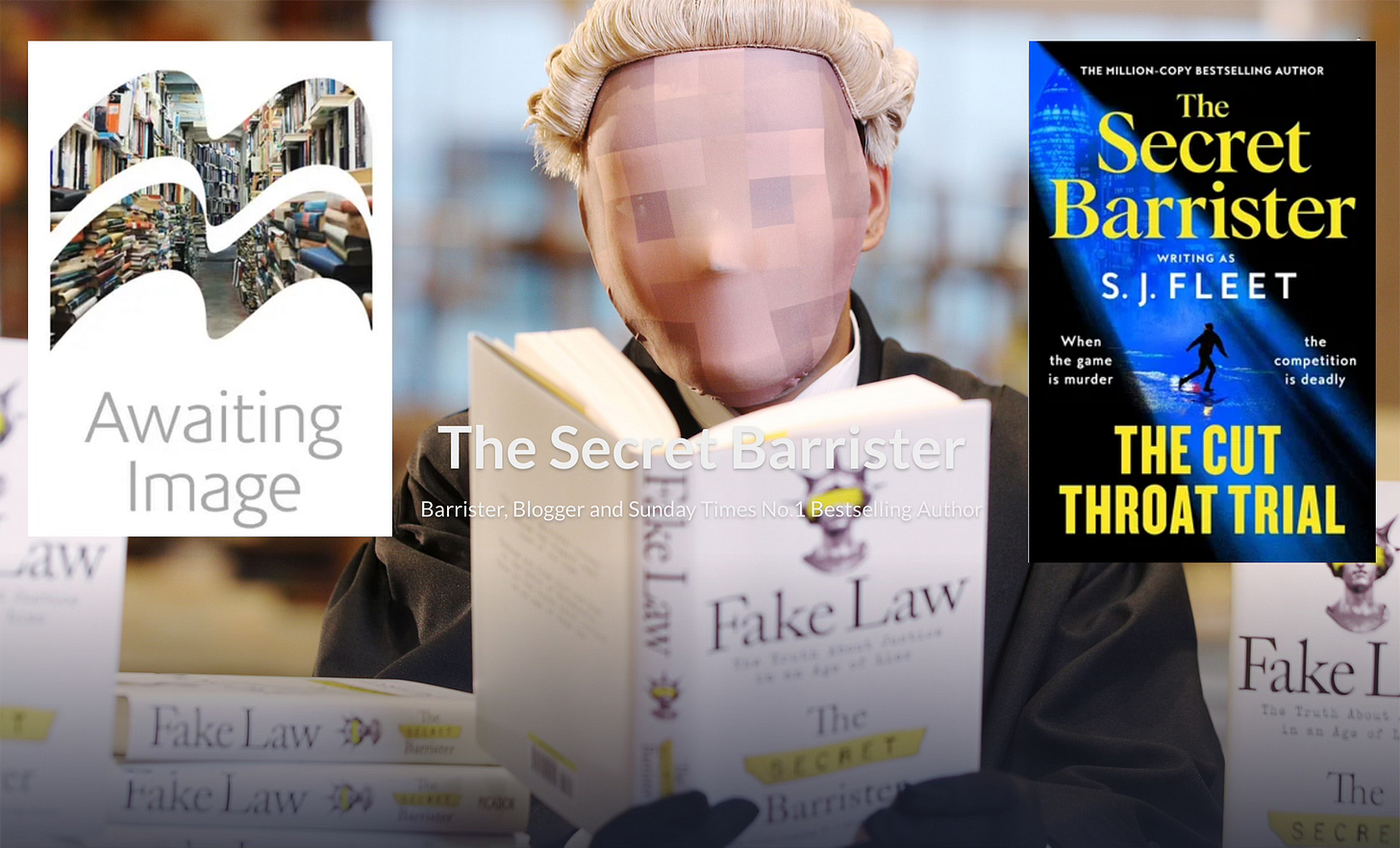It would be going too far to say that the Secret Barrister and I are on first-name terms. But I do have a personally inscribed copy of Fake Law, published in 2020 and signed “SB”.

With publication today of The Cut Throat Trial, SB now has a name. Not a real name, of course: there is no SJ Fleet on the barristers’ register. But are there any clues in it to the Secret Barrister’s identity? Where does the new name come from?
Not Fleet Street, I’m sure, whether or not SJ is a member of one of the two inns of court that abut the former street of ink. An anagram, perhaps? Or perhaps just a reference to being sure-footed?
And the initials? We are assured that SJ is still a junior barrister, which simply means not a KC. But a decade after bursting on to legal Twitter and now in his or her early-to-mid 40s, I think that she or he — and the author’s gender is one thing I do know — could be regarded as a “senior junior”, or SJ for short.
Let’s leave the mystery there. I have no particular wish to know SJ’s name. I suspect it’s not one I would recognise.
But what I do know is that if and when the author is unmasked it will be harder for SJ to produce any more non-fiction, however carefully the characters are disguised. Fiction is surely the future for this shrewd observer of the legal world.
Criminal lawyers will immediately guess what The Cut Throat Trial is all about. When two or more suspects are charged with the same offence, it is not uncommon for each to deny responsibility and blame the others. This is known as a cut-throat defence: you hope to secure your own acquittal by incriminating — “cutting the throat of” — someone else.
I’m not giving anything away by saying that SJ’s first novel is about three teenage boys who are all accused of murdering a 74-year-old man. Each claims the other two were solely responsible. Inevitably, the murder weapon was a knife.
As in all good detective stories, the reader is presented with the evidence as it unfolds. Like the jury, we need to work out whom to believe and what actually happened.
The book includes what looks like documentary evidence: it starts with a series of text messages downloaded from a phone and continues with a statement made to the police by the deceased’s wife. After a brief prologue we find that our narrator is the prosecutor.
Before long, though, the story is taken up by one of the defendants. And then we see developments through the eyes of the other defendants. Successive narrators include the barristers and, of course, the judge. Fortunately, each chapter begins by telling us who’s speaking.
This works well to begin with. But we have to suspend disbelief when the plot requires rough-speaking defendants to quote lengthy passages of legal jargon that they have supposedly heard spoken in court but not fully understood.
Still, that’s no less challenging that the concept of an all-knowing narrator or a novel written in the first person. It doesn’t detract from this tightly plotted thriller with its sub-plots that the jury never sees.
And although I hope their real-life equivalents are not as flawed as the characters SJ has created, The Cut Throat Trial exposes some profound and necessary truths about a system that struggles against the odds to deliver the criminal justice on which we all rely.
To protect SJ’s identity, comments are disabled.

